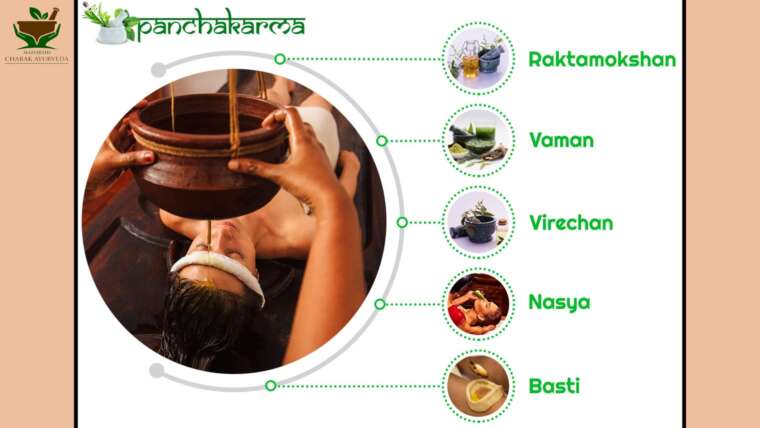Women’s health is a dynamic and intricate balance influenced by the interplay of physical, emotional, and hormonal factors. Ayurveda, the ancient system of natural healing from India, offers a holistic approach to women’s well-being, emphasizing the harmonization of hormones through personalized dietary, lifestyle, and herbal strategies. This comprehensive guide explores Ayurvedic principles and practices to support women in achieving hormonal balance, addressing issues like menstrual irregularities, menopause, fertility, and overall vitality.
The Ayurvedic Perspective on Women’s Health
In Ayurveda, each individual is seen as unique, with a distinct constitution (Prakriti) and life stage (Vikriti). Understanding a woman’s Prakriti is crucial in determining her inherent balance of doshas (Vata, Pitta, Kapha), while Vikriti indicates any imbalances or fluctuations in these doshas. Women, in particular, experience shifting hormonal rhythms throughout their lives, and Ayurveda acknowledges and addresses these changes to promote optimal health.
Balancing Hormones through Diet
Ayurveda places immense importance on the role of diet in maintaining hormonal balance. By recognizing a woman’s dominant dosha and the particular doshic imbalances at play, a tailored diet plan can be created. Here are some dietary guidelines:
1. Embrace Wholesome Foods: Focus on fresh, whole, and unprocessed foods. Opt for seasonal fruits and vegetables, whole grains, and organic, locally sourced produce.
2. Nourish with Healthy Fats: Include ghee, olive oil, coconut oil, and avocados in your diet to support hormone production and maintain overall health.
3. Favor Hormone-Balancing Herbs: Incorporate Ayurvedic herbs like Shatavari, Ashwagandha, and Triphala, known for their hormone-balancing properties.
4. Maintain Regular Eating Habits: Eat at consistent times each day, and avoid heavy, cold, or processed foods, which can disrupt hormonal equilibrium.
5. Stay Hydrated: Drinking warm water or herbal teas can aid digestion and help flush toxins from the body.
Ayurvedic Lifestyle Practices
Beyond diet, lifestyle choices play a pivotal role in supporting hormonal balance:
1. Daily Routine (Dinacharya): Establish a regular daily routine that aligns with the natural rhythms of the day. This includes waking up early, practicing oral hygiene, and engaging in self-care practices like Abhyanga (self-massage) to enhance overall vitality.
2. Exercise Mindfully: Choose physical activities that suit your dosha and current life stage. Yoga, walking, swimming, and meditation can be especially beneficial.
3. Stress Management: Chronic stress significantly impacts hormonal health. Ayurveda advocates stress-reduction techniques such as meditation, pranayama (breath control), and mindfulness to promote emotional balance.
4. Quality Sleep: Prioritize consistent and sufficient sleep. Ayurveda places great emphasis on restful sleep for rejuvenation and hormonal harmony.
5. Detoxification (Panchakarma): Periodic detoxification treatments can help remove accumulated toxins and reset the body’s natural balance.
Menstrual Health and Hormone Balance
Irregular menstrual cycles, PMS, and menopausal symptoms are common hormonal challenges women face. Ayurveda offers specific guidance for each of these phases:
1. Menstrual Health: To address issues like irregular periods, Ayurveda may recommend specific herbs, dietary adjustments, and lifestyle practices tailored to your dosha. These aim to reduce pain, bloating, and mood swings.
2. Pregnancy and Postpartum: Ayurveda supports women during pregnancy with guidelines on nutrition, rest, and gentle exercise. After childbirth, the postpartum period is considered crucial for a woman’s recovery and rejuvenation.
3. Menopause: Ayurveda recognizes menopause as a natural transition and offers herbal remedies and lifestyle changes to alleviate hot flashes, mood swings, and sleep disturbances.
Fertility and Conception
For women seeking to conceive, Ayurveda provides insights into enhancing fertility through diet and lifestyle:
1. Preconception Care: Ayurveda advises preconception care for both partners to ensure a healthy conception and pregnancy. This includes cleansing therapies and the use of specific herbs to support reproductive health.
2. Diet and Nutrition: A fertility-friendly diet can include foods that support hormonal balance and boost reproductive health.
3. Lifestyle and Emotional Well-being: Stress reduction techniques and practices that promote emotional well-being can enhance the chances of successful conception.
Herbal Support for Hormone Balance
Ayurvedic herbs are renowned for their hormone-balancing properties. Some commonly used herbs include:
1. Shatavari (Asparagus racemosus): Known as the “queen of herbs” for women, Shatavari helps support hormonal health, particularly during menopause and pregnancy.
2. Ashwagandha (Withania somnifera): This adaptogenic herb aids in managing stress and promoting overall well-being.
3. Triphala: A combination of three fruits, Triphala supports digestion and detoxification, which can have a positive impact on hormonal balance.
4. Aloe Vera: Aloe Vera gel is often used for vaginal health and is considered beneficial for hormonal imbalances.
Conclusion
Ayurveda offers a profound and time-tested approach to women’s health, focusing on the harmonization of hormones naturally. By embracing a personalized diet, practicing mindful lifestyle choices, and incorporating herbal remedies, women can optimize their well-being and achieve hormonal balance throughout life’s various stages. Ayurveda’s holistic and preventive principles empower women to take charge of their health and embrace a life of vitality and equilibrium. Consulting an Ayurvedic practitioner can provide tailored guidance to support individual health goals and hormonal harmony.





